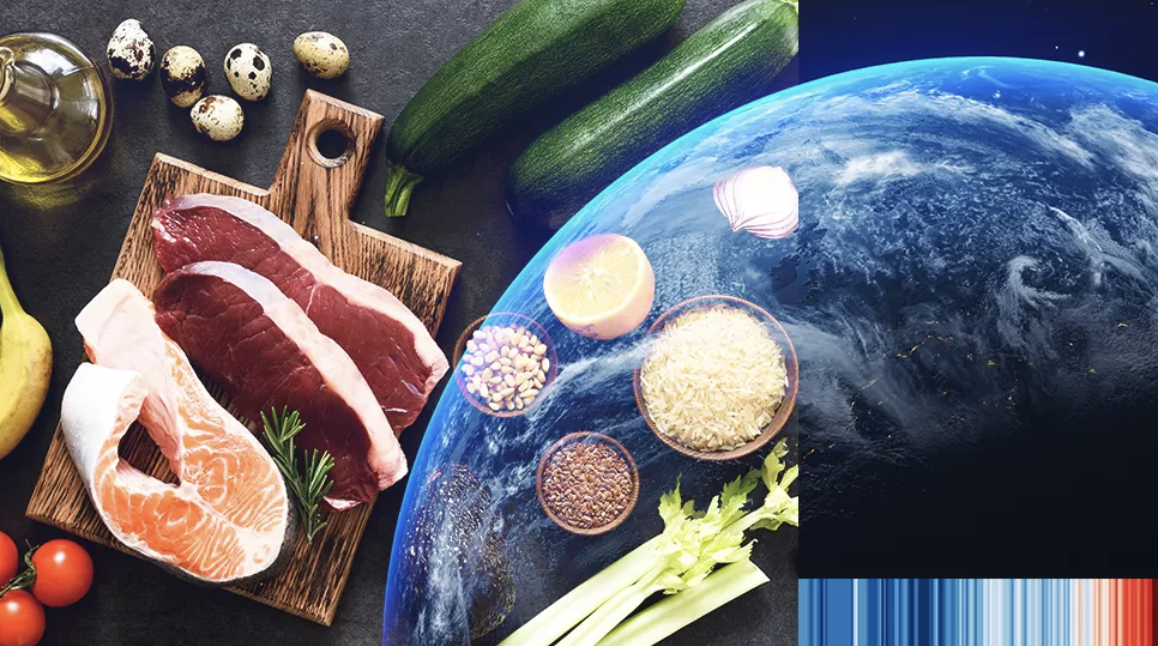Using the Climate change food calculator, users learn more about the impact meat and dairy products have on their environmental footprint. But what is the difference between beef and chicken? Does a bowl of rice produce more climate warming greenhouse gases than a plate of chips? Is wine more environmentally friendly than beer? To find out the climate impact of what someone eats and drinks, choose from one of the 34 items in the calculator and pick how often it is used (Source).
Resource Creator(s)
BBC News is the world’s leading public service broadcaster. They’re impartial and independent, and every day they create distinctive, world-class programmes and content which inform, educate and entertain millions of people in the UK and around the world.
They do this across:
- A portfolio of television services, including the UK’s most-watched channel BBC One, the pioneering online-only youth service BBC Three, and their multi award-winning channels for children, as well as national and regional television programmes and services across England. Northern Ireland, Scotland and Wales
- Ten UK-wide radio networks, providing the best live music broadcasting in the UK, as well as speech radio which informs, educates and entertains. They also have two national radio services each in Scotland, Wales and Northern Ireland and 39 local radio stations across England and the Channel Islands, providing an invaluable and unique service to listeners across the UK
- Their digital services including BBC News, Sport, Weather CBBC and CBeebies, iPlayer and BBC Sounds, BBC Red Button and our vast archive
- BBC World Service television, radio and online on more than 40 languages
Established by a Royal Charter, the BBC is principally funded through the licence fee paid by UK households. Our role is to fulfil our mission and promote our Public Purposes (Source).
Sustainable World Collaborative’s Analysis
We analyzed each resource in our database based on the Ways of Thinking from the Sustainability Education Framework for Teachers. We select only high-rated resources to include in the database. Below are our ratings and notes for this resource.
Systems Thinking

The Climate change calculator connects students with various data sources that show the impact our meat and dairy consumption have on our environment. It discusses how people can lower their global footprint through what they eat to help create a more sustainable future. The article and data get the reader thinking critically about how various personal practices and commercial systems impact our ability to experience a healthy future.
Strategic Thinking

The Climate change calculator uses recent data and goes beyond just looking at how meat and dairy is impacting climate change by also comparing greenhouse gas emissions of meat and dairy to driving electric and gas vehicles and other modes of transportation. The resource supports the authors goal of educating people on how what they eat and how they travel can drastically change their contribution to climate change. It challenges the status quo by showing that consistant individual actions can add up and create change.
Values Thinking

The authors of the article and tool do not acknowledge the perspective they are writing from. Instead, they present themselves as neutral as part of a larger neutral independent news company – ignoring that personal bias will be present despite their best efforts to be neutral. The resource does not explicitly challenge stereotypes or acknowledge stolen land or items. It does not bring counternarratives of the marginalized voices affected by the systems mentioned to light.
Futures Thinking

The Climate change calculator supports users in developing a short and long term plan to reduce their climate footprint and help minimize climate change. The resource promotes critical thinking by having users compare the climate cost of certain foods and modes of transportation. The resources creators are part of a larger organization committed to sharing accurate and complete news and data on sustainability to help promote a society more educated on climate change and sustainable practices.
